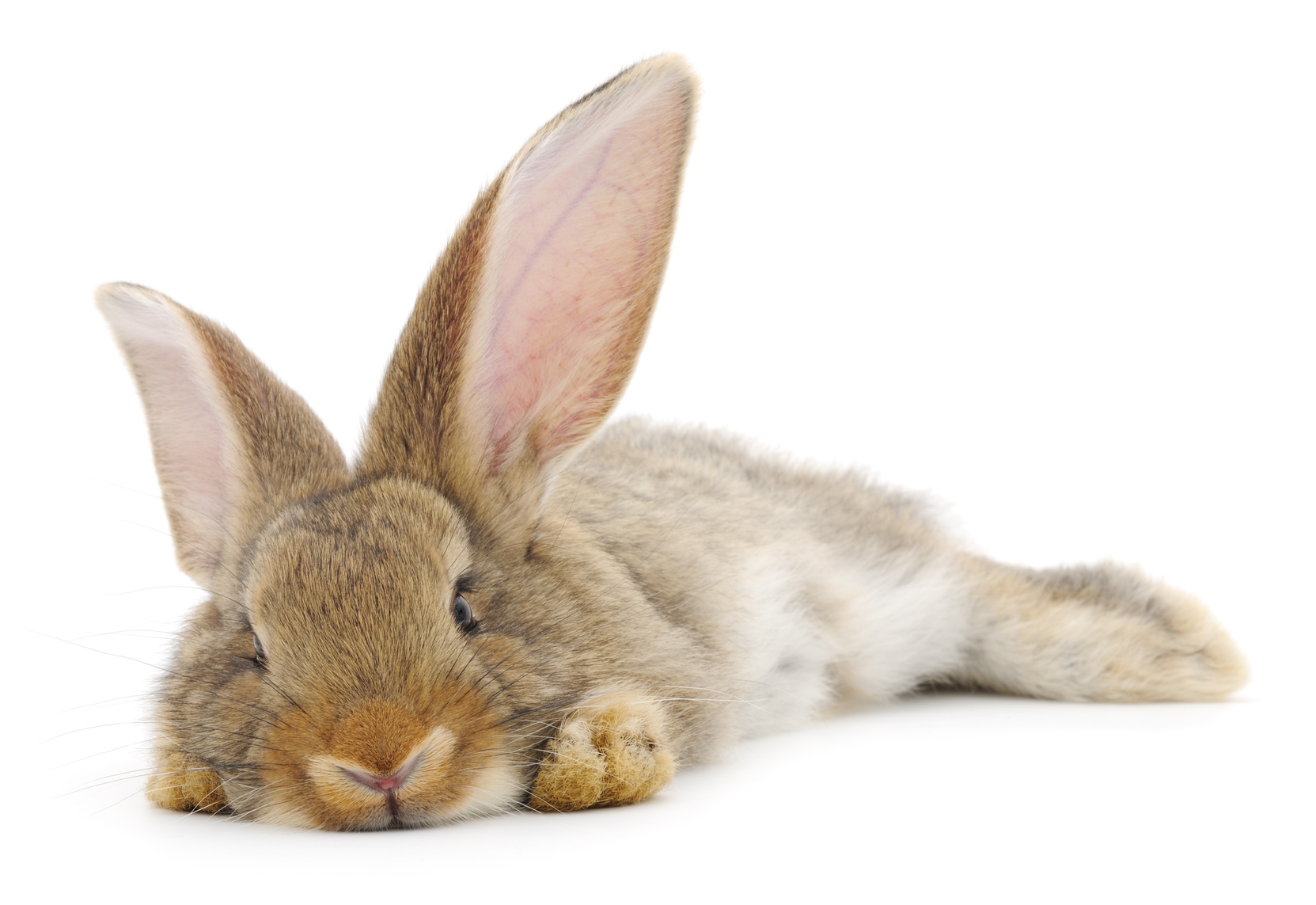Rabbits are a great option for a new family pet. They are generally very friendly and calm and make good additions to most households.
Rabbits are prey species in the wild and unfortunately this means they can be a little bit skittish. This means they prefer a quiet and calm environment. When picked up, it is very important to stabilize their hind limbs to make sure they don’t get scared and kick their legs backwards. This can cause severe problems to their backs. In the same regard, they are very stoic and tend to hide sickness until they are very ill. This means they have to be very closely monitored to insure that they aren’t developing any health concerns.
The best way to do this is to make sure they are eating and drinking normally and have also had a bi-annual veterinary exam. During this exam we evaluate their eyes, teeth, heart/lungs, abdomen and hind end and make sure we do not find anything that may indicate a problem in the future.
Rabbits constantly eat and defecate and this keeps their cecum working properly. Their cecum is a large out-pouching of the intestines where all the food they eat is churning and nutrients being extracted. If your rabbit stops eating, this can shut down the cecum’s normal activity; causing bloat and ileus (loss of normal peristalsis) and should be evaluated immediately. Some of the most common causes include dental disease and vestibular disease.
Watching your bunny for signs of a head tilt is also important. Rabbits commonly experience inner ear and other balance related problems that should be treated immediately if noted.
Diet is an important component of health. We recommend free choice timothy hay, fresh dark leafy greens and a small amount of timothy-based pellets daily. Other vegetables should be reserved as treats. If you have concerns regarding diet or appetite, this can be thoroughly discussed at a wellness visit.
At night, rabbits produce cecotropes which are special droppings that are high in nutrients and they will actually eat them. If they aren’t properly consumed they may resemble abnormal stools and rabbits will not eat them once awake. If you have concerns regarding what is normal, we are happy to discuss this with you.
Besides diet, allowing rabbits to roam in a large safe area of your house is a good idea as long as there are no electrical cords or other dangers. Keeping them confined to a cage can cause many health related concerns. We also do not recommend housing rabbits outside due to the large amount of ecto-parasites and exposure related concerns that we commonly see.
If you have any husbandry or health related concerns, please schedule a consultation and we will be happy to meet you and your bunny!
Author: Dr. Edward Aller

